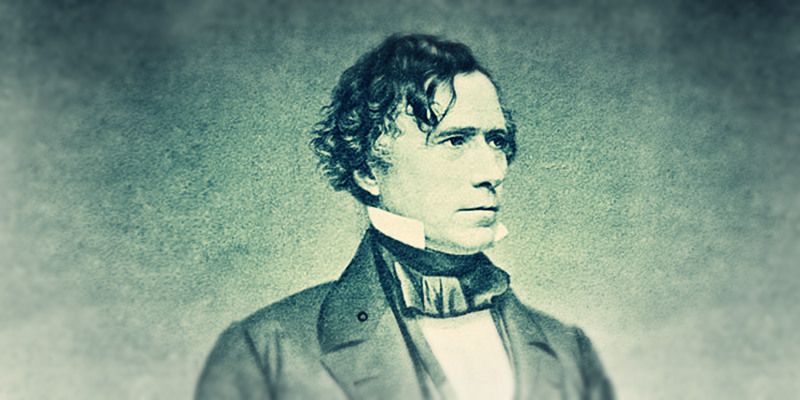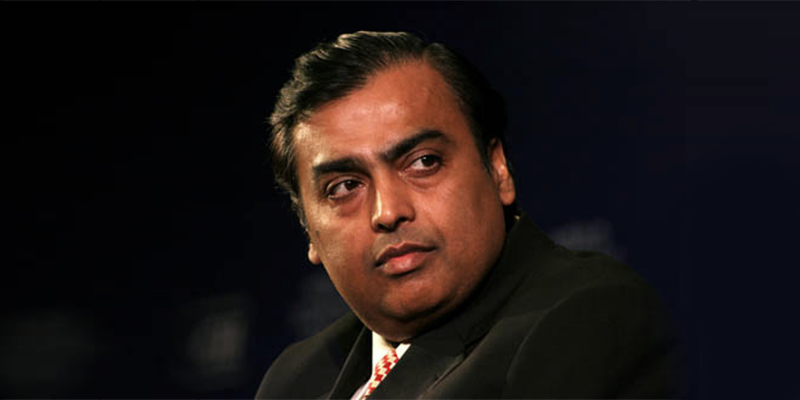Spotting a bad leader: A look through US Presidency
History is written by winners not losers, about leaders not followers. It is rife with stories of those who lead their people to glory and others who failed their own. Every month we read stories of what makes a great leader. Names like Churchill, Martin Luther King Jr., Mahatma Gandhi, Ashoka the Great or Napoléon Bonaparte are constantly attached to the legend of the great leader. We all know the ingredient list of a leadership traits trail mix; by virtue of their conspicuous traits, great leaders are the easiest to spot.
Charisma, wit, charm, intelligence or any of those traits that we associate with a blazing personality do not necessarily make a leader. Then, how do you spot a bad leader when he has so much in common -- even if superficially -- with a good one?
For that... we take a trip down the Worst US Presidents lane.

The Pleaser
A charming and handsome man, Franklin Pierce (1853-1857) is best remembered for his exceptional oratorical skills and even more exceptional incompetence during his presidency.
A man with a taste for the finer things in life, like alcoholism, Pierce tried at every step to compromise between the north and south in issues of slavery. His tendency to want to please everyone lead to him being dominated by other political heavy-weights like Stephen Douglas who forcefully encouraged Pierce to sign the Kansas-Nebraska Act (created the territories of Nebraska and Kansas, giving them the power to allow slavery by popular sovereignty), leading to widespread violence and blood-shed.
A man famous for his need to be liked by his peers and inability to say 'no', he filled with Cabinet with odd political extremes, leaving all political parties displeased with his choices. Though a Northerner, Pierce constantly infuriating his party members in matters of slavery. Pierce would eventually be abandoned by his party to spend the remainder of his life criticising Abraham Lincoln, dying of liver cirrhosis, and never really pleasing anyone, in the end.

Doctrinal
James Buchanan's (1857-1861) need to follow constitutional doctrine was so strong that he spent most
his presidency paralysed by stubborn cluelessness in the face of political challenges. Still reeling from Pierce's poor performance, the Americans elected a stately, formal and baronial entity to let some fresh air into the White House. But none of those qualities helped with Buchanan's obstinate insistence on allowing slavery simply because it was constitutionally legitimate, according to the Supreme Court.
His inability to understand the Northern argument eventually led to intense sectional discord and a break in the Democratic Party, allowing the entry of Abraham Lincoln, the country's first Republican President and its unifier.
Not Up With The Times
After Lincoln's assassination, Andrew Johnson (1865-1869) took hold of the presidency.
The biggest challenge set against him was executing a reconstruction programme for the former slave states.
America was slowly, but gradually, moving towards acceptance of black suffrage and racial equality.
But Johnson, an extremely old-fashioned chap, turned his buggy around and rode first into slavery land proclaiming individual state rights superior to federal rule. Black suffrage took a back seat, 'Black Codes' were imposed by people, and thousands of Confederate were pardoned. As the Congress became more confrontational against Johnson's regressive attitudes, he vetoed most black legislation. Johnson's increasingly belligerent stances against African American policies eventually lead to Congress-rule with Johnson becoming a Presidential non-entity for the remainder of his term.
The Honourable and Loyal
Ulysses S Grant (1869-1877) was a war hero. Grant was responsible for leading the country to a grand victory against the Confederates, and a supporter of race equality.

A cursory glimpse at his presidency shows an extremely honourable man who despised politics, yet made bold political and economic decisions. But, it also reminds us that honourable and loyal men seldom make great politicians (Ahem… Ned Stark).
Grant's loyalty to those who worked with him led him to nominate them into the cabinet. His loyalties disallowed him from keeping power away from corrupt, opportunistic or largely useless politicians. Grant kept far too many tainted politicians close to his side. This eventually led to a presidency fraught with scandals like the Delano affair, Whiskey ring, Salary grab scandal and the popular Black Friday Gold Panic.
An honest and honourable man, his inability to be shrewd in dealing with those close to him eventually scarred what could have been a great presidency.

Vague Visions
Warren G. Harding (1921-1923) was a simple-minded man of joy who was convinced the job was beyond his scope. Surrounded by corrupt men (with their own name: 'Ohio Gang'), Harding preferred to drink whiskey and play poker with them, than tighten the leash around their necks.
In spite of being surrounded by the worst crop of politicians, Harding hardly had any enemies thanks to his limp stance on every national issue. With no vision for America or the next four years, Harding preferred gambling the White House china set, instead.
Harding is, in the end, best remembered for his stringent views on immigration quotas and a deep support of tax reduction for American corporations and the wealthy – not the best stance, retrospectively.

Hands-off Leadership
Calvin Coolidge (1923-1929) ascended to presidency in the middle of the night right after Warren Harding's death in 1923, and then went back to sleep -- a foretelling sign of what things would be like.
Coolidge liked being photographed in various civilian costumes, gave interviews on radio and held hundreds of conferences. Otherwise socially reticent, he was everywhere. He believed in relative presidential-non-involvement in most national matters of reform, minimum executive control and federal restraint. His minimal governance ideology eventually led to apathy towards the disastrous economic decline of American farmers.
At the time, Coolidge's support for lax economic policies created an economic boom (good), only to be followed by a stock market crash in 1929 (bad). Minimum governance had become non-existent governance.
There are many qualities that make a bad a leader that are more obvious like cluelessness (Rahul Gandhi) or eccentricity (Saparmurat Niyazov, self-titled Türkmenbaşy). Before we're enamoured by the superficial charm or allure of a leader, perhaps a good look at tell-tale signs of a potentially disastrous leadership need just as much attention as tips on leadership.












